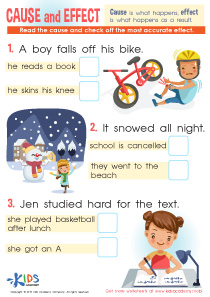Vocabulary expansion Normal Reading Non-Fiction Worksheets for Ages 6-9
7 filtered results
-
From - To
Explore our Vocabulary Expansion Normal Reading Non-Fiction Worksheets, designed specifically for children aged 6-9. These engaging worksheets foster vocabulary growth and reading comprehension through fun and interactive activities. Young learners will dive into non-fiction texts, enhancing their understanding of diverse topics while developing essential language skills. Our carefully crafted exercises encourage kids to connect new words to their meanings, improve spelling, and boost their overall reading confidence. Perfect for classroom use or at-home learning, these resources empower students to expand their vocabulary in an enjoyable way. Discover the joy of learning with our dynamic worksheets today!
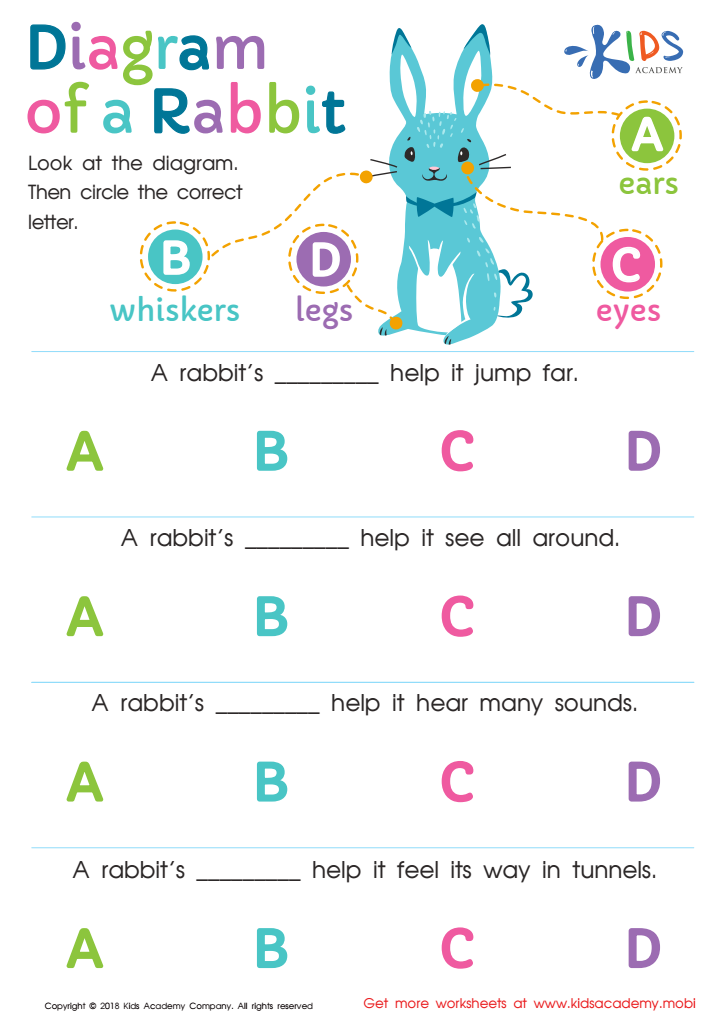

Diagram of a Rabbit Worksheet
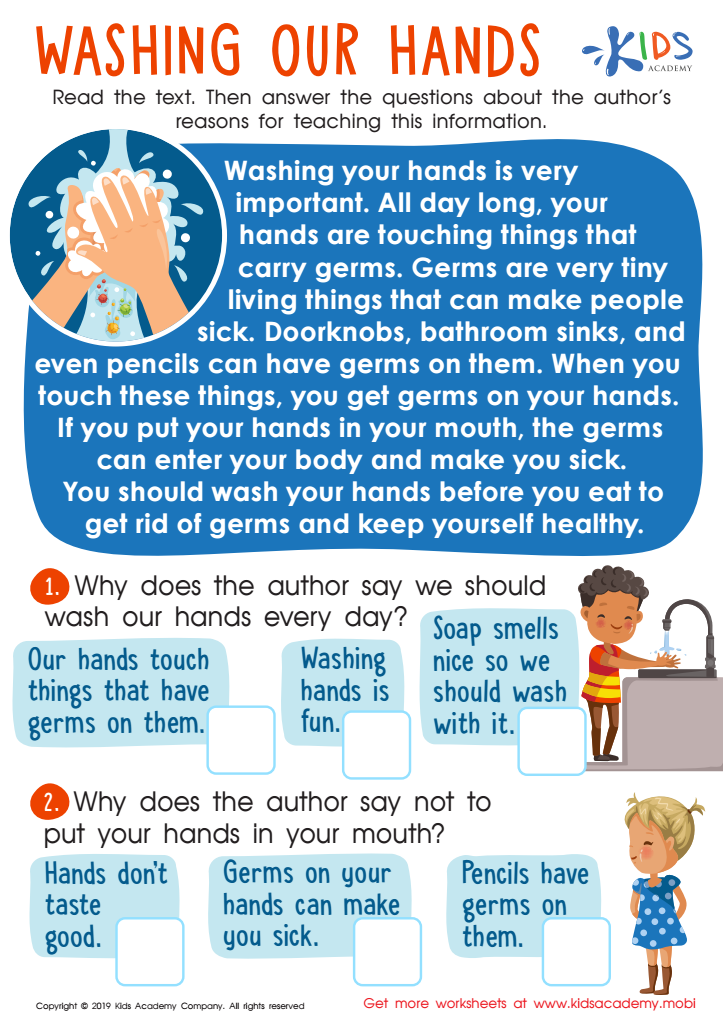

Washing Our Hands Worksheet
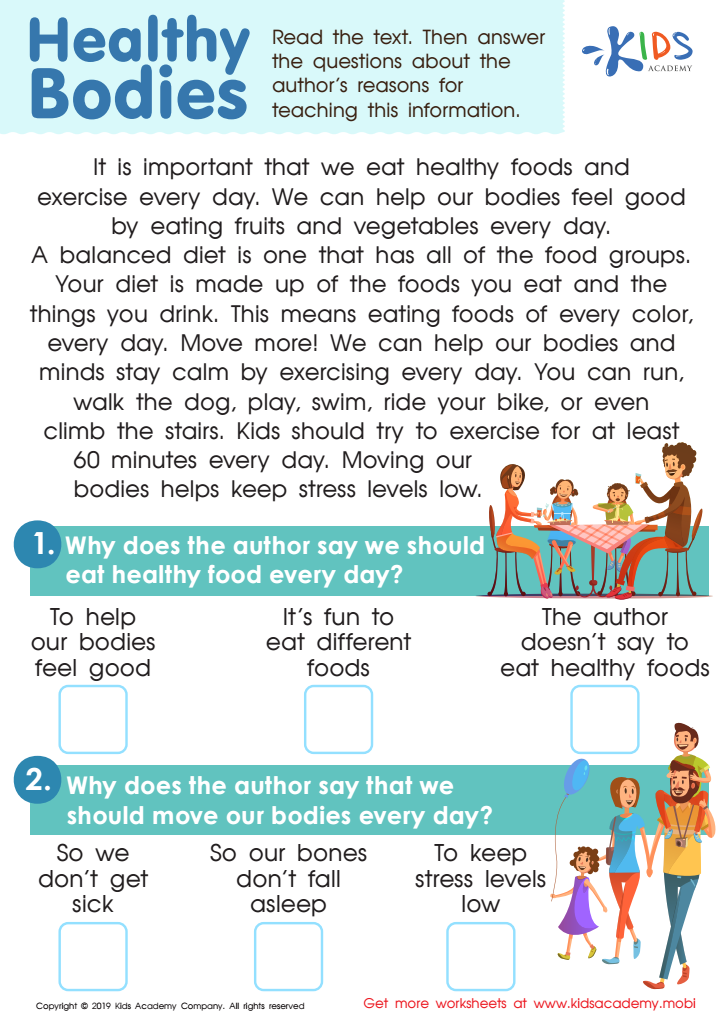

Healthy Bodies Worksheet
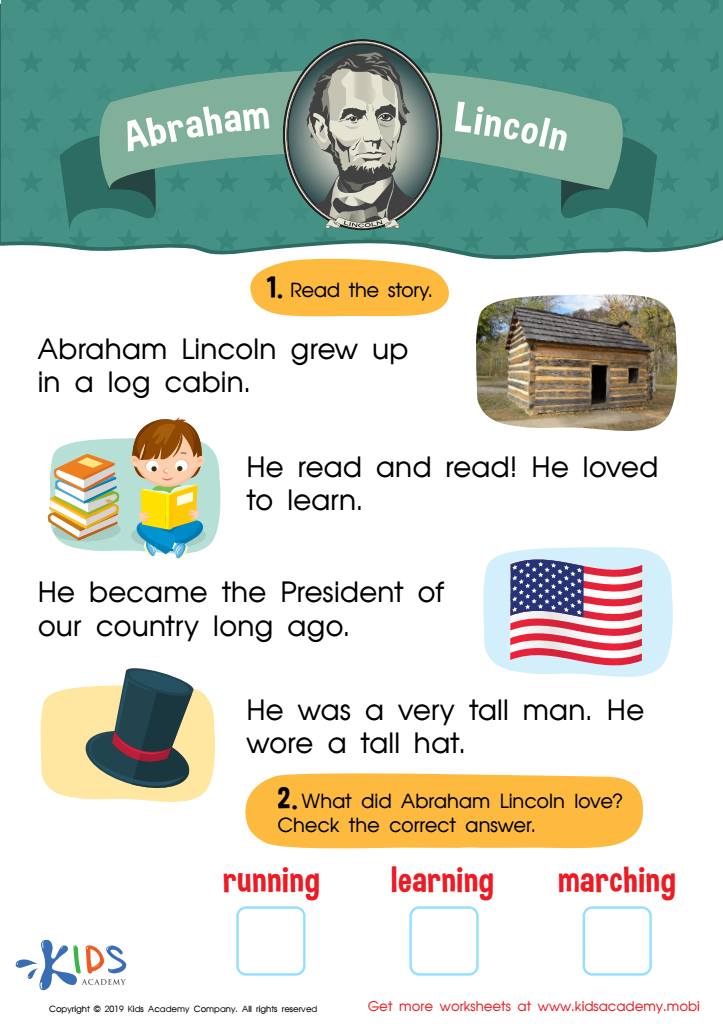

Abraham Lincoln Worksheet
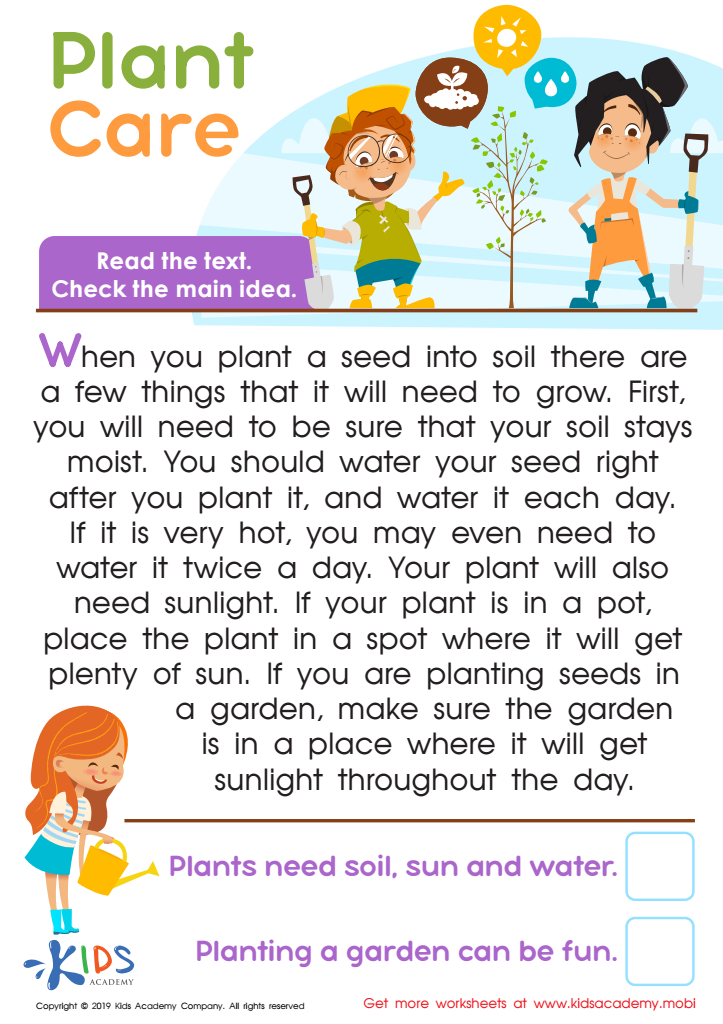

Plant Care Worksheet
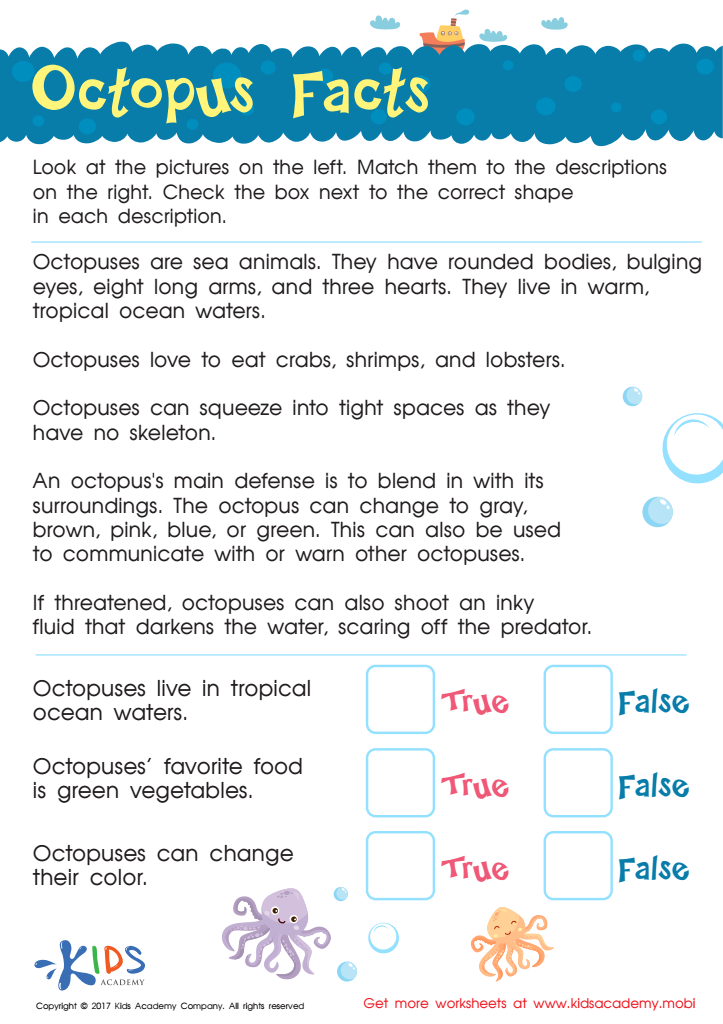

Octopus Facts Worksheet For Kids
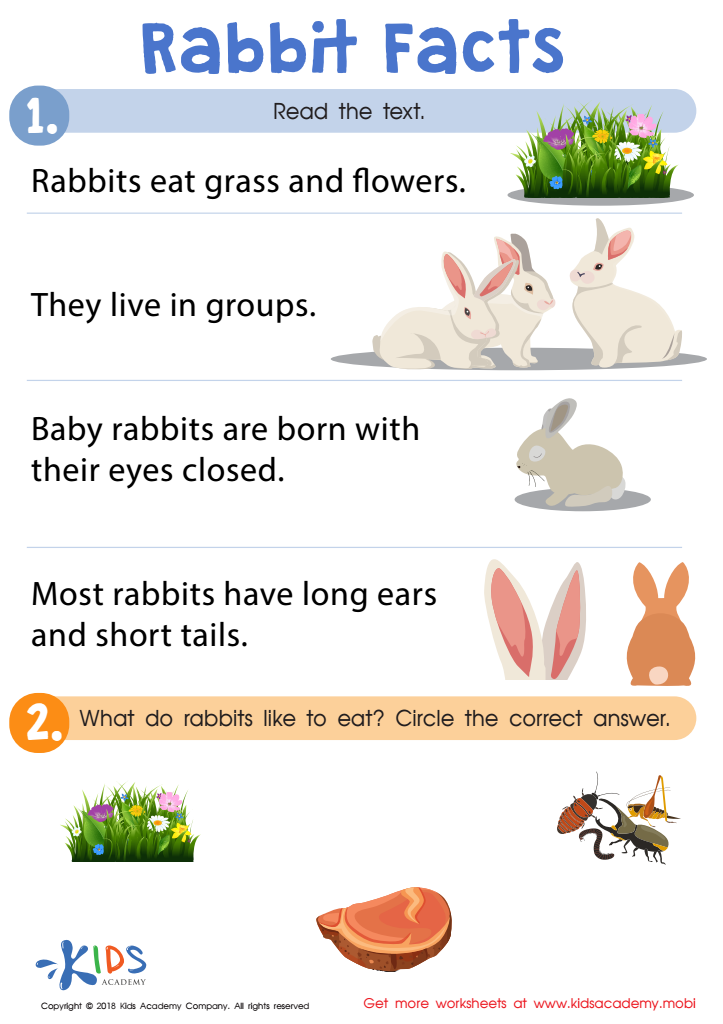

Rabbit Facts Worksheet
Vocabulary expansion through normal reading of non-fiction for ages 6-9 is crucial for several reasons. First, this age group is at a foundational stage in their literacy development, where understanding and using diverse vocabulary directly influences their reading comprehension and overall communication skills. Non-fiction texts introduce young readers to specific terminology and factual information, fostering curiosity and critical thinking.
Moreover, an enriched vocabulary prepares children to engage more meaningfully with content across subjects. This deepens their understanding of the world around them, making learning more relevant and exciting. It builds a strong language base, empowering children to articulate their thoughts effectively and enhancing their writing skills.
Furthermore, exposing children to non-fiction helps improve their ability to analyze information, evaluate different perspectives, and glean factual details — key skills for academic success. By helping children discover varied topics, parents and teachers nurture their interests, encouraging lifelong learning habits. Ultimately, prioritizing vocabulary expansion in non-fiction reading equips children with essential tools for both current and future educational pursuits, all while broadening their horizons and fostering a love for reading. Investing in their vocabulary development today lays the groundwork for successful communication and comprehension skills tomorrow.

 Assign to My Students
Assign to My Students











